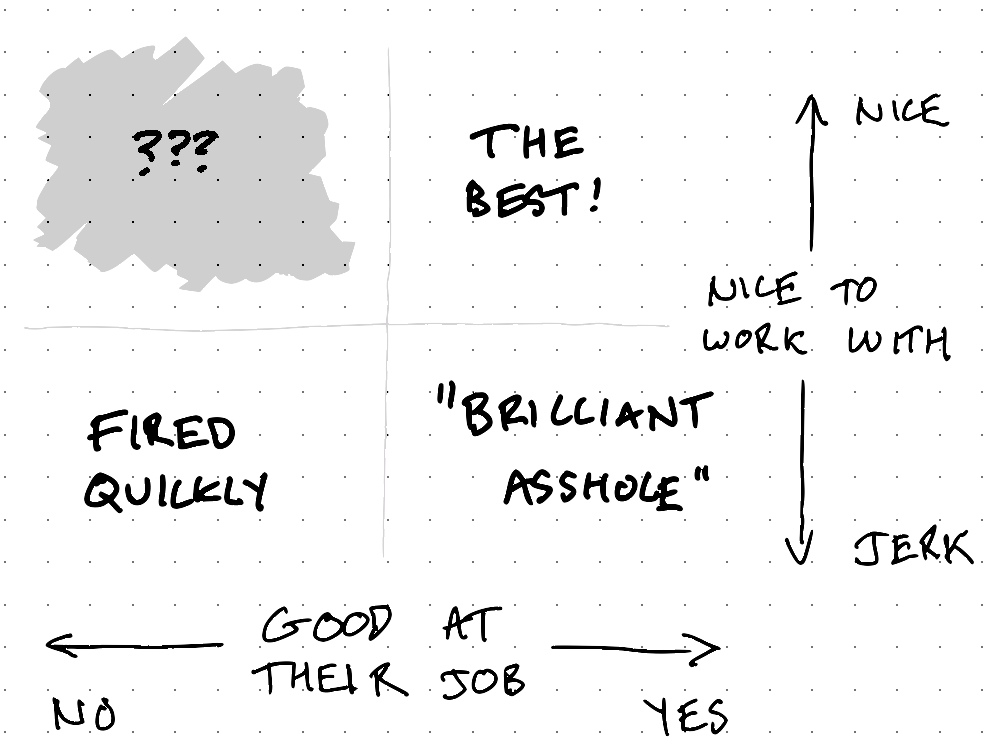Incompetent but Nice
Here’s something I think about from time to time but still haven’t figured out.
At a very reductionist level, we can talk about job performance along two axes:

I’ve written about this before; see You Have Two Jobs. To be “good at your job”, you need to (a) do the work (write code, edit video, manage staff, etc.) and (b) be nice to work with. (And, this is by no means a novel framework; tons of people have written about work in this way before.)
But every time I look at job performance using this rubric, it opens the door to a question I don’t have an answer to. Let’s label the four quadrants in this chart:

Three out of the four quadrants are easy for me to reason about:
- Someone who’s good at the work, and nice to work with: that’s the best. Does their job well, and is easy to get along with; these are the kinds of people everyone wants to work with.
- People who are bad at the work and jerks aren’t very pleasant but get almost always fired quickly. They can’t do the work, and they lack the social skill to be able to convince others to help them keep their jobs.
- People who are good at the work but not very nice are the “brilliant asshole” archetype. I could write quite a bit about how our industry mostly gets this archetype wrong – spoiler alert: they mostly don’t exist – but that’s another article.
It’s that fourth quadrant that I keep coming back to, and have trouble with. What do you do about someone who’s really nice but can’t seem to do the work?
The proximate answer is fairly easy: you try to help them level up: pay for classes, conferences, and/or books; connect them with mentors or coaches; figure out if something’s in the way and remove the blocker. Sometimes folks in this category just need to learn, and because they’re nice it’s easy to give them a lot of support and runway to level up. Sometimes these are folks with things going on in their lives outside work and they need some time (or some leave) to focus on stuff that’s more important than work. Sometimes the job has requirements that can be shifted or eased or dropped – you can match the work to what the person’s good at. These situations aren’t always easy but they are simple: figure out the problem and make a change.
But occasionally I run into people who seem somehow resistant to change. You can’t identify any particular reason why they’re struggling – and, more importantly, neither can they. Any changes you make are ineffective: they just can’t seem to get work done.
Normally I like to write articles where I have concrete advice, but here I don’t have any.
I haven’t figured out how to handle this situation. Firing them feels wrong; keeping them on feels wrong. What do you think? Get in touch: email jacob at this domain or https://jacobian.org/@jacob on the Fediverse.
Note: this article is not about any person or workplace in particular. I’ve been thinking about this, on and off, for several years, and for no particular reason decided to finally write it up today. If you think this is about you or about someone you know, you’re wrong.